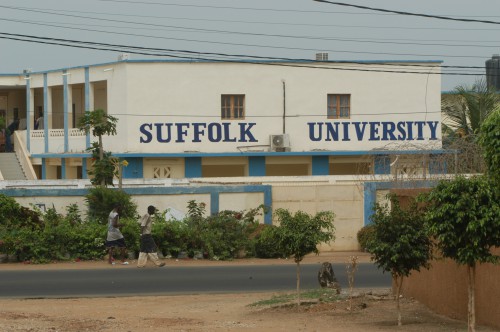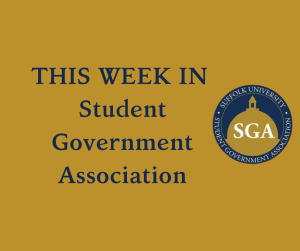Was closing Suffolk’s Dakar campus the right decision?
June 7, 2015
In 2011, Suffolk University announced plans to close its Dakar campus stating financial reasons, which still has faculty questioning the decision.
The campus located in Senegal was considered by Suffolk University as a gateway to American culture for students in Senegal and other West African countries. Students from the Boston campus also visited the Dakar campus for study abroad trips, a platform for American students to learn about Senegalese culture.
A statement released by the university in 2011 said that with the rise of technology and multiple platforms for students to learn about American culture, the necessity of the campus in Senegal has decreased significantly, a major factor being the costs involved in maintaining the campus and its programs.
The announcement of the Dakar campus closing generated mixed feelings from students, faculty, and staff at the Boston Campus. University spokesperson Greg Gatlin believes that even though it was a difficult choice Suffolk made, the university continues to have a strong connection with the region.
“The university continues to enjoy a strong reputation in the region and has strengthened our programs on the Boston campus for international students,” said Gatlin.
“While the decision to close the Dakar campus was a difficult one, every measure was taken to ensure that students in that program were able to complete their studies at the Dakar campus or on Suffolk’s Boston campus,” said Gatlin.
Four years after the closing of the Dakar campus, some still wonder if that was the right decision to make. Some professors who worked there believed it was a good opportunity for professors and students alike.
“The campus and country were a great place to visit, teach, and learn. The climate was difficult, it was a developing country, people [were] friendly, kind, poor, but proud and dignified.” said the professor who now works at the Boston campus.
Being in West Africa opened the classes and faculty to new cultural experiences in and outside of their department.

“Our best experiences were staying in a village for several days in the Savannah, visiting the Holy City of Touba and having lunch with the Grand Marabou,” said the professor.
“[We went to the] Djoud National Park largest bird sanctuary in the world, taking pirogue canoes on the Grand Barbarie Coast to deserted beaches, visiting St. Louis, the Pink Lake, Keur Massar, seeing Sabar Dances and lion men, and a lot more,” he said.
Tracy Fersan, a staff member at the International Students Services Office believes the Dakar students made a major impact on the global experience at Suffolk.
“Dakar students have contributed to the global experience of all Suffolk students,” said Fersan.
She said after the campus closed, students were given the option of completing their college education in Boston and most of the Dakar students took leadership positions on campus.”
Speculating on how Dakar campus will affect the Suffolk campus in the future, Fersan said, “I have no doubt that our Dakar alumni will recommend Suffolk as a great place to study. We have 1,500 international students on campus; double what we had six years ago.”







